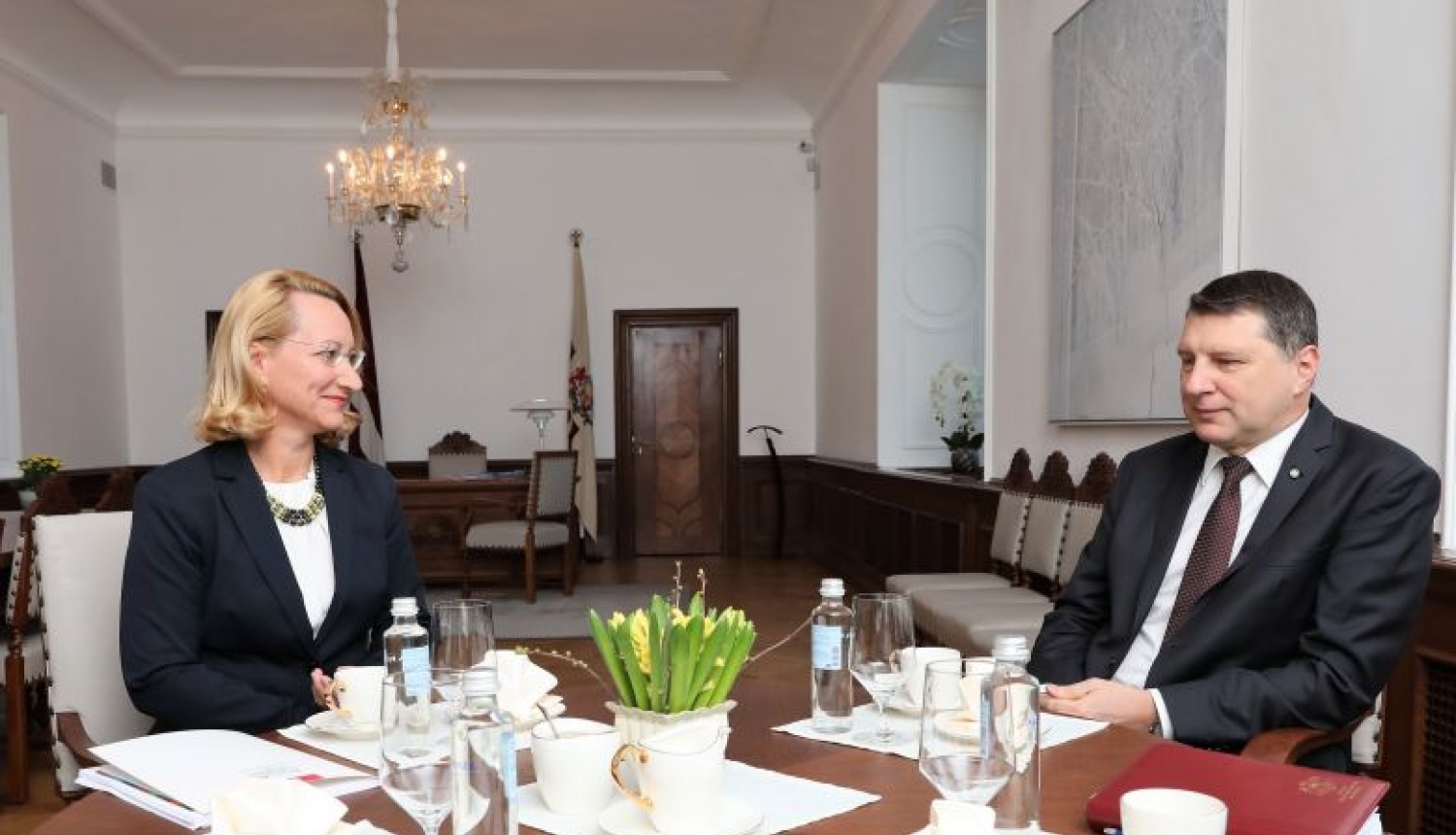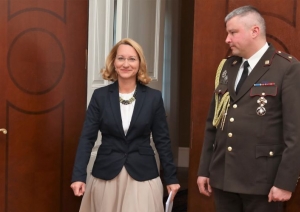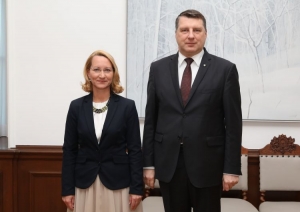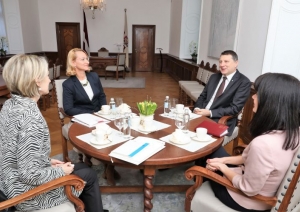During the meeting, the Minister of Culture informed the President of Latvia about the planned events of the Centenary celebration program in 2019, as well as work on strengthening the mass media space and facilitating social cohesion.
The President of Latvia has pointed out that launching of discussion on potential support instruments is currently necessary so that it would be possible to implement various initiatives by strengthening national self-confidence and belonging to Latvia after Latvia’s Centenary program will be finished.
During the meeting, both officials have agreed that the cultural sector has always been not only an important part of our national identity but also a sector that contributes to the economy. According to the President of Latvia, it is significant that all stakeholders agree on the potential location of the National Concert Hall in Riga and start working on the identification of required funding for the construction of that concert hall in the nearest future.
The President of Latvia also appreciated the support provided to the Latvian film industry within the framework of the Latvian Centenary Program “Latvian Films on the Centenary of Latvia”, and he stated, “Films created in Latvia have gained not only high recognition from our audience but is also highly appreciated internationally. At the same time, films created in Latvia promote public awareness of the issues that are crucial to us, especially the history and people of our country. That is why we must find ways to continue supporting the development of the film industry in Latvia because only we can tell the stories of our country and people ourselves.”
It has already been reported that President of Latvia Raimonds Vējonis planned to meet with all the ministers of the government led by Krišjānis Kariņš to hear the vision of the Ministers on the assignments to be fulfilled and priorities to be pursued in their supervised sectors in 2019 and later on. Until now, the President of Latvia has already met with Ministers of Finance, Economics, Agriculture, Interior, Transport, Health, Environmental Protection and Regional Development, Justice, Welfare, Education and Science, and Foreign Affairs.







